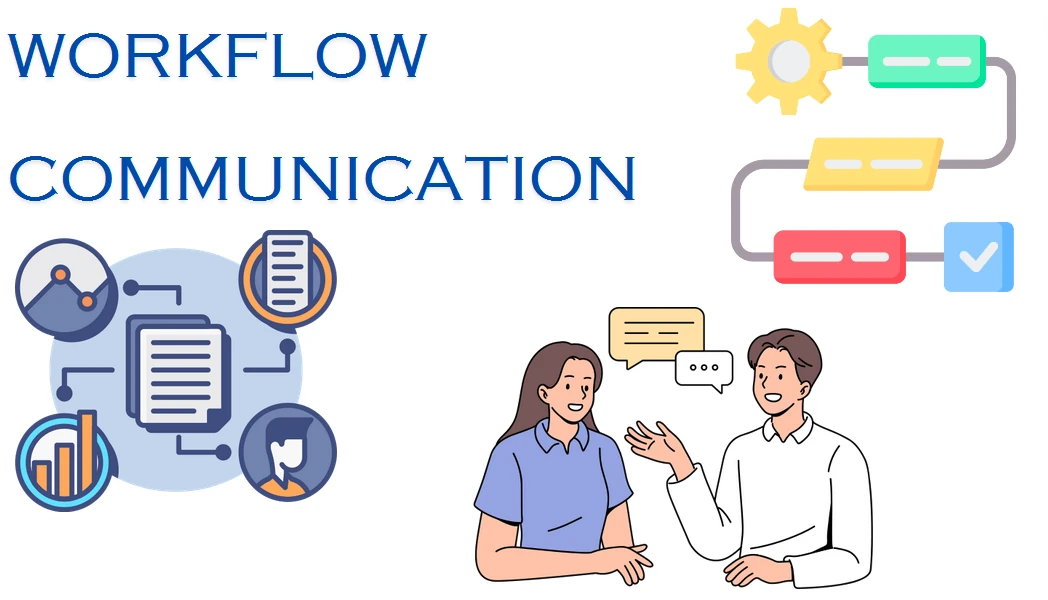As a small business owner, your success hinges on diligent effort and strategic choices. To enhance productivity and master time management, bringing a virtual assistant (VA) on board is a stellar strategy.
Learn more about
Nonetheless, despite recognizing a VA’s potential, many individuals struggle with effective delegation, limiting the positive effects on their profitability.
This guide is designed to transform your approach by offering essential tips, insights, and best practices for delegating tasks. Embrace these strategies to streamline your operations, liberate your schedule, and alleviate stress.
- Assess your capability
- Concentrate on tasks that occur regularly and follow a consistent schedule.
- Plan Your Delegations Beforehand
- Offer detailed Guidance:
- Offer assistance and direction
- Make Clear Deadlines
- Organize a Project Framework
- Visit PMI BOK Guide
- Maintain Open Communication
- Implement Time-Tracking Tools
- Embrace Delegation
- Learn to Relinquish – You Can’t Control Everything
- Recognize the Scale of Your Business
- Embrace Diverse Perspectives
- Be Confident in Your Virtual Assistant
- Keep Your ‘Why’ at the Forefront
- The Key Takeaway – The Ultimate Advantage
Assess your capability
Understanding your strengths is a vital component of effective delegation. Begin by assessing your daily responsibilities to identify the tasks where you excel, especially those that significantly enhance your business and boost revenue.
While these are key tasks to retain, consider also the duties you genuinely enjoy. Ideally, you should keep some of these tasks for yourself, as they contribute to your personal satisfaction and vitality throughout the workday.
It’s important to maintain not just team engagement but also your own, ensuring that you remain motivated and invested in your work.
In summary, prioritize keeping tasks where you:
- Excel at
- Are passionate about
- Provide unique value (in terms of revenue, expertise, etc.)
Delegate the rest to a virtual assistant. This strategy frees up your time and energy, allowing you to elevate your business to new heights.
Concentrate on tasks that occur regularly and follow a consistent schedule.
Delegation enhances both time management and productivity. While it’s suitable to delegate one-off tasks, assigning recurring and consistent tasks to a virtual assistant is an effective strategy to optimize their role.
There are several compelling reasons for this approach:
Delegating recurring tasks reduces the need for repeated training or lengthy explanations.
Routine tasks can be planned and executed consistently, minimizing the need for your direct involvement.
Plan Your Delegations Beforehand
Determining which tasks to delegate should happen well before you bring a virtual assistant on board. This foresight ensures that you select a candidate with the appropriate skills and experience.
Over time, you can expand the scope of delegated tasks—either by increasing the responsibilities of your current assistant or by bringing on additional support.
Offer detailed Guidance:
We’ve all experienced the frustration of receiving vague or confusing instructions. You find yourself puzzling over the assignment, unsure of what is expected.
At times, you might resolve the ambiguity on your own; other times, you’re caught in an email exchange seeking clarification. By the time you understand what’s needed, precious time has been lost.

This is a crucial consideration when delegating tasks to your virtual team. Clear instructions enable your virtual workers to complete tasks efficiently and on schedule.
Here are some strategies to effectively communicate your expectations:
- Fully grasp the task yourself to provide a clear explanation.
- Gather all necessary documents, templates, and access credentials in advance.
- Define clear, measurable objectives for the task.
When communicating with your virtual assistant, consider these additional tips:
- Use straightforward and direct language to outline the required actions.
- Break the task into smaller, more manageable sections.
- If the task is complex and involves multiple steps, clarify the priorities and expected deliverables.
Whenever possible, supply examples of the desired outcome to guide your virtual assistant’s efforts.
Offer assistance and direction
Clear instructions are crucial, yet no document can anticipate every possible question.
During the initial phase of your collaboration with a virtual assistant, being patient and maintaining open lines of communication are essential. It’s important to be accessible to address their inquiries and provide necessary support as they acclimate to your operations.
Like anyone new to a job, a virtual assistant may require some time to adjust to your specific working style. Fortunately, this adjustment period is typically brief.
To facilitate this process, consider implementing a structured training and onboarding program that introduces them to your company’s workflows and procedures.
Additionally, holding regular meetings can be invaluable for answering questions, offering feedback, and discussing task progress.
Make Clear Deadlines
Without specific deadlines, it can be challenging for a virtual assistant to prioritize tasks effectively. General directives like “as soon as possible” can be interpreted variously by different individuals. If your virtual assistant is managing tasks for multiple clients, your assignments might get deprioritized.
For tasks with flexible timelines, assign an initial due date but clarify that a slight delay is acceptable. For critical tasks with non-negotiable deadlines, make sure to communicate the urgency clearly.
Organize a Project Framework

Enhance task management and monitor your virtual assistant’s (VA’s) progress by setting up a project structure. For simplicity, you could use a folder on Google Drive to keep everything organized. If your team includes multiple people or VAs handling various tasks, employing project management software like Asana could be more effective.
Visit PMI BOK Guide
Maintain Open Communication

Ensure that your VA can easily reach out with questions or for clarification on tasks. If you prefer face-to-face discussions, keep your video conferencing tool open throughout the day.
For those who find instant messaging more efficient, using a platform like Slack can streamline communication, avoiding the inefficiencies of email exchanges.
Also know about
Implement Time-Tracking Tools
To get a detailed understanding of how much time your VA spends on specific tasks, use time-tracking software. These tools can show the duration spent on each application and website and can even take screenshots.
This is helpful to assess whether the delegation of a task is efficient, whether you might handle it quicker yourself, or if a more experienced VA is needed.
Embrace Delegation
Initially, it may be tough to write detailed instructions and effectively onboard your VA, but a major challenge is often learning to “let go.” Recognizing the benefits of delegation can be transformative.
Learn to Relinquish – You Can’t Control Everything
To begin letting go, start by delegating tasks that you find tedious. Observing how this simplifies your workload can encourage you to consider other business areas that could benefit from less direct control, further demonstrating that not everything requires your personal involvement. This approach can greatly enhance your operational efficiency and personal job satisfaction.
Recognize the Scale of Your Business
Initially, it was your vision that sparked the creation of your startup, but it has grown beyond that original concept. As your business expands, it becomes clear that managing every facet alone is impractical. Clinging to control can impede long-term growth.
Embrace Diverse Perspectives
Limiting yourself by trying to manage all aspects of your business can stifle innovation. Creativity thrives in diversity; thus, incorporating virtual assistants (VAs) from varied backgrounds can enhance problem-solving capabilities, optimize processes, and inject new ideas that could improve your services.
Be Confident in Your Virtual Assistant
For these benefits to materialize, you must trust your VA to manage details meticulously, deliver quality work, and ensure accuracy. This might require investing more than the minimum wage, especially for specialized tasks.
Hiring through platforms with positive reviews or reputable agencies can also bolster this trust.
Keep Your ‘Why’ at the Forefront
The most proficient delegators are those who always keep the overarching goals in sight. Essentially, it’s about remembering the core reasons for engaging a virtual assistant.
Entrepreneurs and small business owners turn to virtual assistants (VAs) for various compelling reasons, such as:
Alleviating Stress
Running a business can quickly consume you. The overwhelming responsibilities can disrupt your work-life balance, leading to significant stress.
This is a common plight, affecting over 90% of entrepreneurs, where offloading tasks to a VA can help prevent burnout and avoid mental health issues.
Enhancing Business Growth
Delegating routine and time-consuming tasks to VA frees up your schedule, allowing you to focus on strategic, high-ROI activities. This shift not only aids in better time management but also provides the opportunity to implement growth initiatives and expand your outreach effectively.
Improving Personal Life Quality
The relentless demands of entrepreneurship often overshadow personal life priorities. With a VA handling business task, you gain more time to spend on personal activities, such as attending family events, enjoying meals with loved ones, or simply unwinding. This support can significantly improve your work-life balance.
Choosing Virtual Assistants Over Full-time Employees:
Opting for a VA over a full-time employee brings several advantages:
Efficiency in Hiring
Employing a VA bypasses the lengthy processes associated with full-time hiring, such as advertising roles, conducting interviews, and waiting out notice periods.
Flexible Capacity
Unlike fixed employee costs, VAs provide scalable support, allowing you to adjust assistance based on current business needs, thereby optimizing costs.
Access to Specialized Skills
Using a VA service widens your access to specialized skills. Instead of a full-time employee, you can engage specialists for precise tasks, enhancing your business’s adaptability and service quality.
Remembering these motivations can guide your decisions and strategies, ensuring that hiring a VA aligns with your business objectives and personal values.
The Key Takeaway – The Ultimate Advantage
Engaging with a virtual assistant can transform your business landscape, offering not only specialized expertise and 24/7 availability but also the agility to scale operations swiftly and efficiently.
The real game-changer, however, lies in the substantial boost to productivity and time management. A virtual assistant can liberate your schedule, allowing you to concentrate on strategic growth pursuits such as business development, cultivating deeper client connections, and innovating marketing tactics.
Mastering the art of delegation is key to leveraging these benefits. Identifying which tasks to delegate and understanding how to effectively manage them are crucial steps.
Moreover, knowing how to support and guide your virtual assistant is fundamental to nurturing a productive partnership.
Ready to reclaim your time and enhance your productivity? Contact our expert team today to explore how a virtual assistant can be tailored to your needs.
Experience the benefits firsthand—try us out for free today!